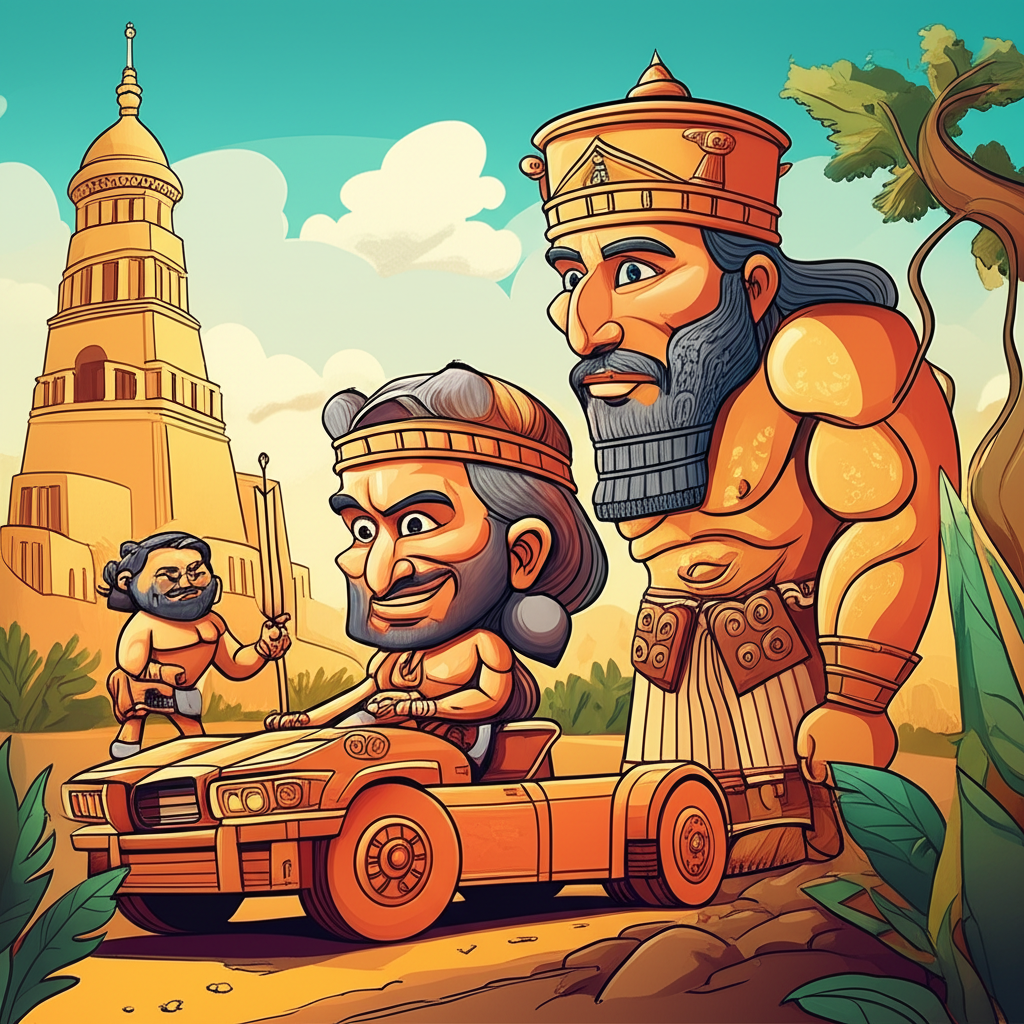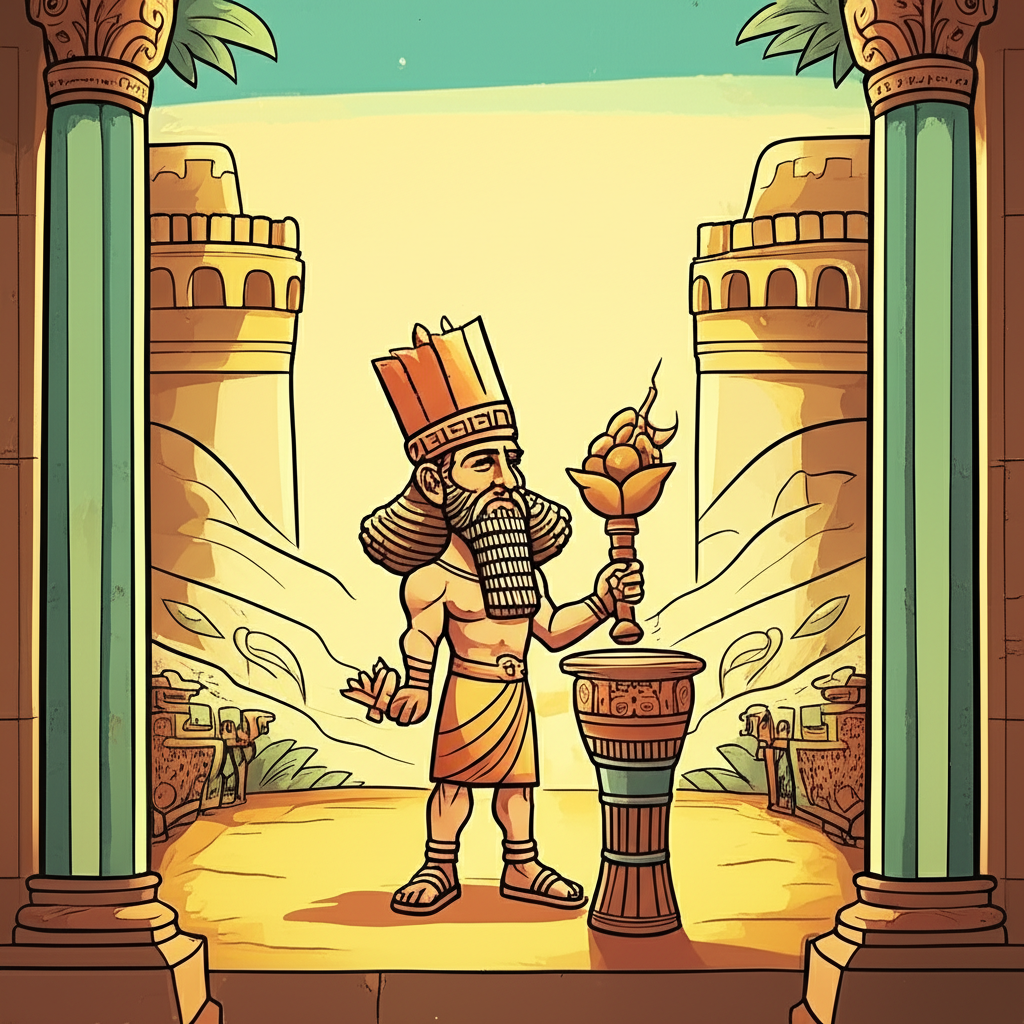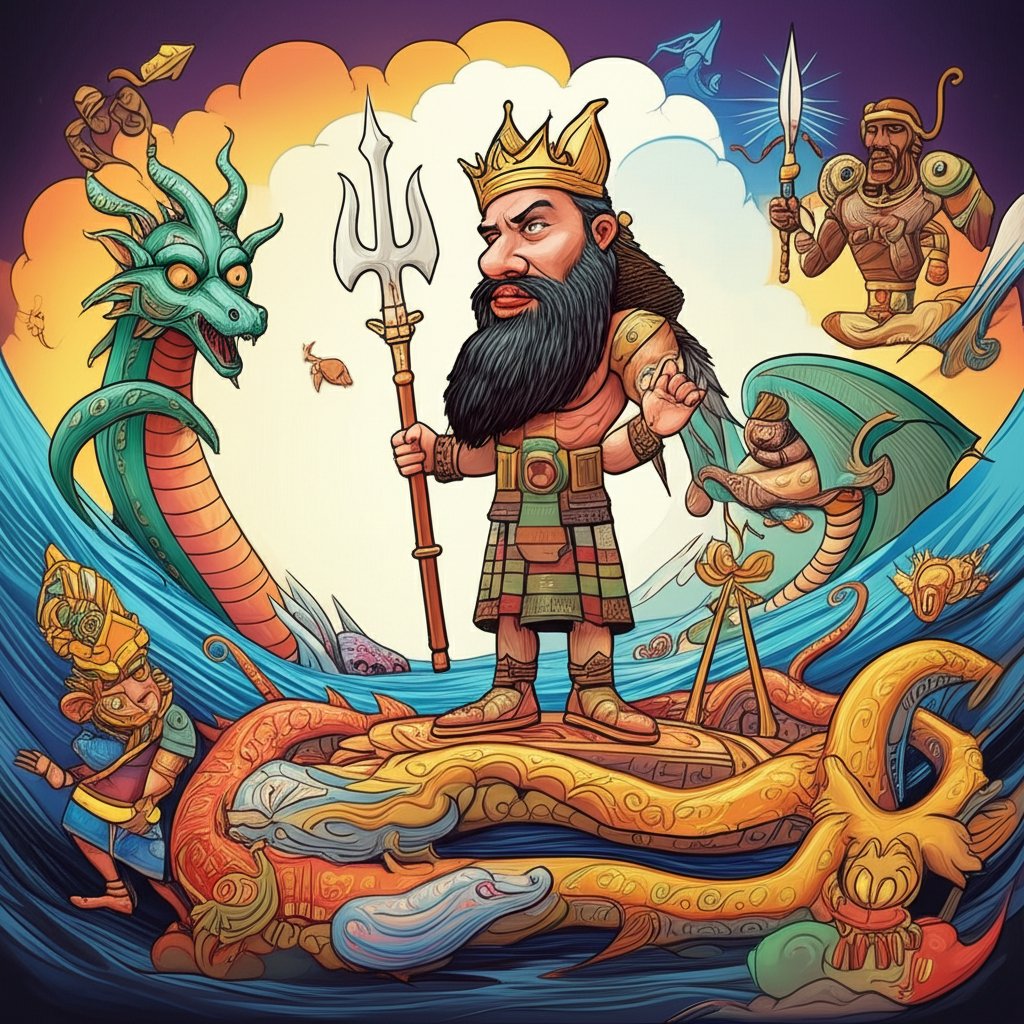
Introduction:
From the ancient lands of Mesopotamia, cradled between the Tigris and Euphrates rivers, comes a tale etched in clay – the Epic of Gilgamesh. This is not a record of historical events, but rather a traditional story passed down through generations by the Sumerians and later the Babylonians. It is a glimpse into their world, their beliefs, and their understanding of life, death, and the human condition. We explore this epic not as an endorsement of its contents, but as a window into the rich tapestry of human storytelling and cultural expression.
Origins and Cultural Background:
The Epic of Gilgamesh originated in Sumerian civilization around 2100 BC, later finding its more complete form in Akkadian during the Old Babylonian period (c. 18th century BC). This was a time when city-states flourished in Mesopotamia, each ruled by a king who often claimed divine authority. The environment was one of constant struggle – against the unpredictable floods of the rivers, against rival cities, and against the perceived whims of the gods.
The Mesopotamians viewed the world as a flat disc, surrounded by a cosmic ocean. Above was the dome of the sky, and below was the underworld, a dark and dusty realm where the spirits of the dead resided. Their gods were anthropomorphic, possessing human-like qualities, both benevolent and capricious. They believed humans were created to serve the gods and that their fate was largely determined by divine will. This worldview permeated every aspect of their lives, from agriculture to warfare, and found expression in their myths and legends.
Character Description: Gilgamesh
Gilgamesh, the central figure of the epic, is described as two-thirds god and one-third human. He is the king of Uruk, a powerful and imposing figure. He is exceptionally strong, handsome, and wise, surpassing all other men in physical prowess and intellect. However, his divine heritage also imbues him with arrogance and a tendency to abuse his power. He oppresses his people, demanding their labor for ambitious building projects and taking young women for his own pleasure.
Symbolically, Gilgamesh represents the inherent duality of human nature. He embodies both the potential for greatness and the capacity for cruelty. His divine blood grants him extraordinary abilities, but his mortal side makes him prone to flaws and weaknesses. He is a figure of both admiration and concern, reflecting the complex relationship between rulers and the ruled in ancient Mesopotamian society. The character is not presented here as a divine being to be worshipped, but as a figure in an ancient story, whose attributes are meant to convey certain characteristics.
Main Story / Narrative Retelling: The Epic Unfolds
The story begins with the people of Uruk crying out to the gods, weary of Gilgamesh’s tyrannical rule. In response, the goddess Aruru creates Enkidu, a wild man of immense strength and innocence. Enkidu lives among the animals, unaware of civilization. When a hunter encounters Enkidu, he is frightened by his power and seeks advice from Gilgamesh. Gilgamesh sends a temple prostitute, Shamhat, to tame Enkidu.
Shamhat seduces Enkidu and introduces him to the ways of civilization – clothing, food, drink, and human companionship. Enkidu, now transformed, journeys to Uruk to challenge Gilgamesh. They meet in a fierce battle, but their strength is so evenly matched that they eventually become close friends.
Together, Gilgamesh and Enkidu embark on a series of perilous adventures. They travel to the Cedar Forest, guarded by the monstrous Humbaba, whom they slay. They return to Uruk in triumph, but their actions anger the gods. The goddess Ishtar, scorned by Gilgamesh, sends the Bull of Heaven to ravage the city. Gilgamesh and Enkidu bravely defeat the Bull, further enraging the gods.
As punishment for their transgressions, Enkidu falls ill and dies. Gilgamesh is devastated by the loss of his friend. Confronted with the reality of mortality, he becomes consumed by a fear of death. He embarks on a quest for immortality, seeking out Utnapishtim, the only human to have survived the great flood and been granted eternal life by the gods.
Gilgamesh travels to the ends of the earth, facing countless dangers and hardships. He eventually finds Utnapishtim, who tells him the story of the flood and reveals that immortality is a gift reserved for the gods. Utnapishtim offers Gilgamesh a chance to prove himself worthy by staying awake for seven days. Gilgamesh fails, falling asleep almost immediately.
Disheartened, Gilgamesh prepares to return to Uruk. Utnapishtim’s wife takes pity on him and reveals the location of a plant that can restore youth. Gilgamesh retrieves the plant, but on his journey home, a serpent steals it while he bathes. Gilgamesh, now resigned to his mortality, returns to Uruk a wiser and more compassionate king. He realizes that true immortality lies not in escaping death, but in leaving a lasting legacy through his achievements and the city he has built.
Symbolism and Meaning:
The Epic of Gilgamesh is rich in symbolism and offers insights into the concerns and values of ancient Mesopotamian society. The story explores themes of friendship, mortality, the abuse of power, and the search for meaning in life. Gilgamesh’s journey represents the human struggle to come to terms with death and to find purpose in a world where mortality is inevitable. The friendship between Gilgamesh and Enkidu highlights the importance of companionship and the transformative power of human connection. The Cedar Forest and the Bull of Heaven symbolize the untamed forces of nature and the dangers of hubris. Ultimately, the epic suggests that true immortality lies not in physical existence, but in the enduring legacy of one’s actions and the impact one has on the world.
Modern Perspective:
The Epic of Gilgamesh continues to resonate with modern audiences and has been adapted into numerous forms of art, literature, movies, and video games. Its themes of friendship, mortality, and the search for meaning remain timeless and universal. In literature, the epic has inspired countless writers and artists. In movies and video games, its characters and storylines have been reimagined and reinterpreted. Cultural studies scholars analyze the epic to understand ancient Mesopotamian society and its worldview. The epic’s enduring popularity is a testament to its power as a work of storytelling and its ability to connect with audiences across cultures and time periods.
Conclusion:
The Epic of Gilgamesh is a valuable cultural artifact that provides a glimpse into the beliefs and values of ancient Mesopotamian society. It is a testament to the power of storytelling and the human imagination. We approach this story as a work of fiction, a cultural expression of a bygone era, and not as a source of religious belief or practice. As Muslims, we understand that Allah alone is the true Creator and Sustainer of the universe. We can still appreciate and learn from the cultural heritage of other civilizations, recognizing that storytelling traditions can provide insights into the human condition and the diverse ways in which people have sought to understand the world around them.




